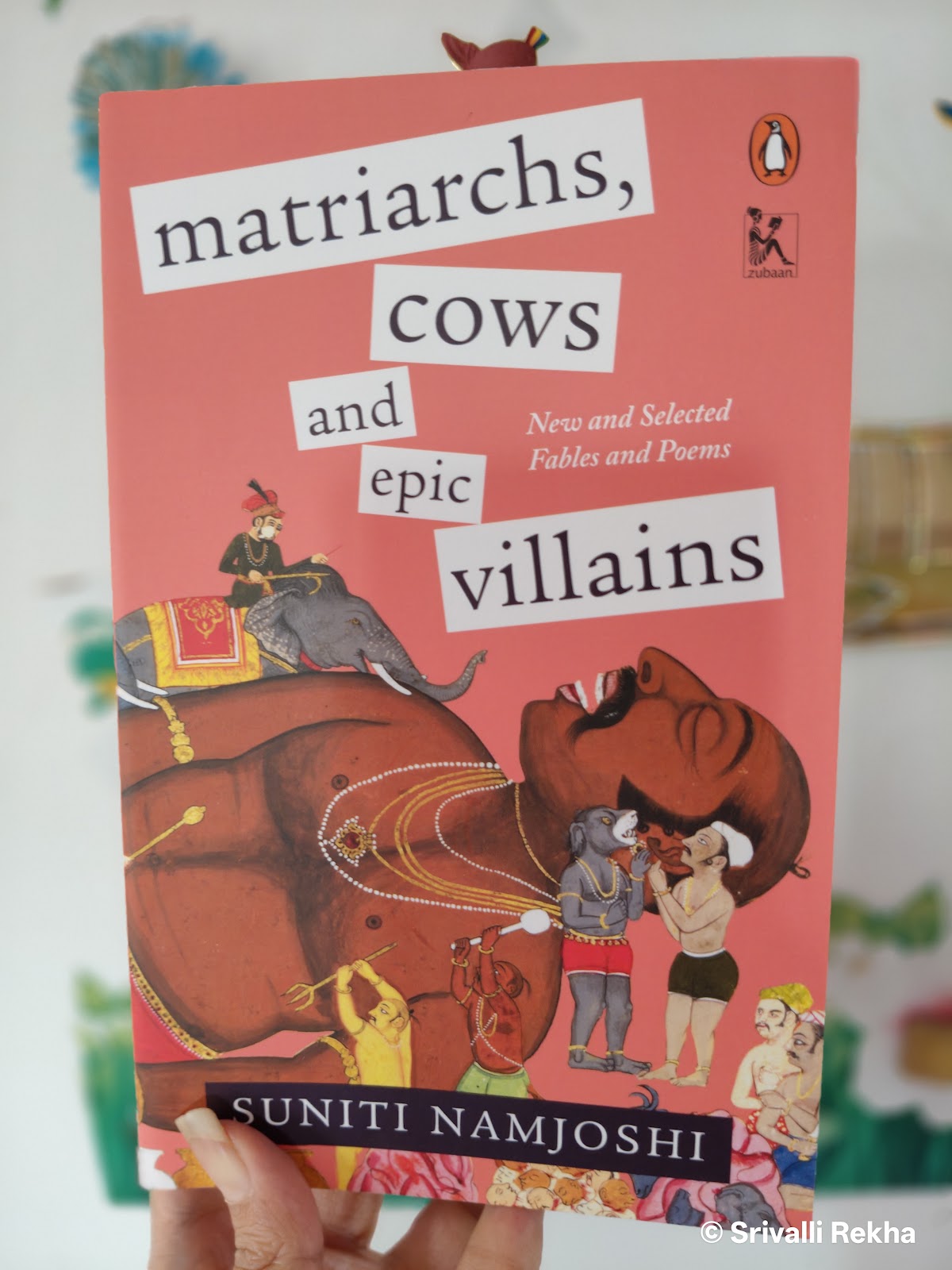Publication Date: 24th Mar 2025
Purchase Link (India): https://www.amazon.in/Matriarchs-Cows-Epic-Villains-Selected/dp/819425339X/
Genre: Short Story Collection
3.7 Stars
One Liner: Interesting!
The book is a collection of
short stories, fables, lyrical poems, and observations (commentary) based on
Hindu epics. It has several pieces, including abridged versions of her two
novellas and two books from the Ravana trilogy – Shupi’s Choices and Kumbh.
The book begins with a
foreword about the author, her writing, and storytelling style etc.
The first set is a bunch of
fables based on Indian and other folklore. These are short and crisp retellings
with a feminist twist. However, unlike most feminist works I’ve read so far,
the fables don’t preach or rant. They simply present a different perspective on
things. This really cuts down the drama and fluff, leaving the reader to think
about what the author wants. It’s an effective storytelling style.
There are some poems scattered
between the fables. These have a surreal and abstract vibe despite the brief
notes provided by the author. I like how they sound, though I can’t explain them
if you were to ask (and before you wonder, I’m a poet too).
It’s amazing how some of these
pieces have been written in the 1970s. They do have a timeless quality. The
author mentioned P.Lal in one of her notes (he published two of her poems). I’m
assuming it’s the same Prof. Purushottama Lal who translated the complete
Mahabharata into English in verse. Well, if he gave his approval for her works,
I’d be more than happy to read along!
After the short pieces, we get
four novellas of sorts:
- The Conversations of a Cow (abridged)
- The Mothers of Maya Diip (abridged)
- Shupi’s Choices (part of the Ravana trilogy)
- Kumbh (part of the Ravana trilogy)
The Conversations of a Cow is
divided into five parts (it has an author’s note and an internal content page).
The author, a lesbian and a feminist, takes on the lesbian feminist movement
using herself as one of the main characters. The genres are a blend of magic
realism and bizarro fiction, if you ask me. There’s no gyan or preaching. Just a
confused woman trying to figure out who she is while being thoroughly stressed
out by so many definitions, labels, and the behavior styles a person labeled as
something should follow.

Shupi’s Choices and Kumbh have
overlapping content since both belong to the same trilogy (they didn’t
include the third book). The stories deal with Shurpanaka and Kumbhakarna
(Ravana’s siblings) and how they adjust to a modern-day world. As with most
retellings, this one also shoves modern-day caste and empowerment into the
bygone era and pretty much eliminates the nuances of the epic. Luckily, these
have only a minor role. Most of the plot is set in the future timeline
(current-day scenario of sorts), so it has something unique to offer (while
also ticking off a checklist). As you can guess, these are my least favorite
entries in the book. However, I still chuckled at a few scenes, so all is not
lost!
I love how the book has been
structured and formatted. It is so neat, with clear author’s notes for sections
and internal ToC (table of contents). Jojy Philip did a great job typesetting
this book.
To summarize, Matriarchs, Cows and Epic Villains is a collection of
poems, fables, and stories with women and feminism as the central theme. Most
of them are non-preachy, crisp, and thought-provoking.
My thanks to Blogchatter and Penguin Zubaan for a copy of the book. This review is powered by the Blogchatter Book Review Program and contains my honest opinions.

"Matriarchs, Cows and Epic Villains" sounds like an intriguing and unconventional title!
ReplyDeleteYeah! I got it for the title!
Delete